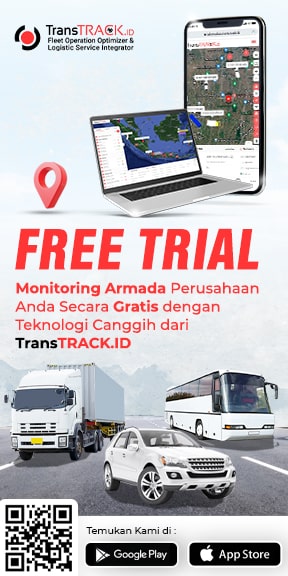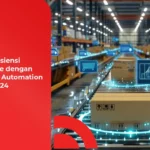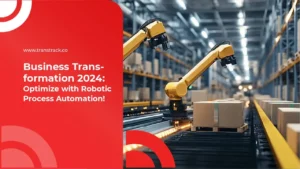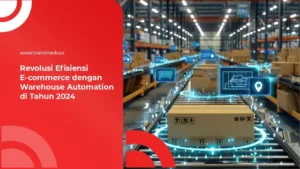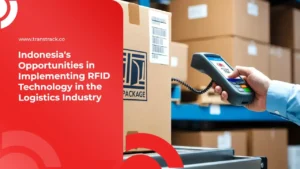Types, Challenges, How to Choose, and Technology in Logistics Trucks
Posted on June 3, 2024 by Nur Wachda Mihmidati

In an increasingly connected and fast-paced world, the logistics industry plays a vital role in ensuring goods and commodities move from one place to another efficiently and on time. Logistics trucks, as the backbone of land transportation, play an important role in the global supply chain. However, managing a truck fleet with its various operational challenges is no easy task. From route optimization and vehicle maintenance to regulatory compliance and driver management, every aspect requires attention and the right strategy. This is where technology and innovations such as Fleet Management System from TransTRACK come in to provide smart and efficient solutions in managing logistics truck fleets.
Types of Logistics Trucks
In the logistics industry, different types of trucks are used to transport goods according to the needs and type of cargo. Here are some commonly used types of logistics trucks:
Tronton Trucks
A Tronton truck is a truck with a 3-wheel axis configuration (6 wheels in front and 4 wheels at the back), which provides a larger load capacity than a regular truck. This truck is usually used to transport large volumes of goods such as building materials, industrial machinery, and others. Tronton trucks have a carrying capacity of around 10-20 tons.
Trailer Truck
Trailer trucks consist of two main parts: the truck head (tractor) and the trailer (trailer). The trailer can be removed and replaced, allowing flexibility in transporting different types of loads. Trailer trucks are often used to transport containers, heavy equipment, and large quantities of goods. The load capacity can reach more than 20 tons depending on the type of trailer (flatbed, refrigerated, lowboy, etc).
Wing Box Truck
Wing Box trucks have a special design with doors that can be opened upwards like wings, allowing easy access for loading and unloading goods. These trucks are usually used to transport retail goods, electronics, and products that require quick and easy handling. The load capacity is usually around 8-15 tons.
Box Truck
Box trucks are trucks that have an enclosed box at the back, protecting the cargo from weather and theft. These trucks are often used to transport goods such as food, beverages, electronic products, and other items that need extra protection. Their load capacity can vary from a few tons to more than 10 tons, depending on the size of the box.
Each type of truck has its own advantages and disadvantages, and choosing the right type of truck depends largely on the type of cargo and the logistics needs of the company.
How to Choose the Right Logistics Truck?
Choosing the right logistics truck is crucial to ensure optimal efficiency, safety, and operational costs. Here are some factors to consider in choosing the right logistics truck:
Type and Volume of Goods
- Type of Goods: Choose a truck that suits the type of goods to be transported. For example, electronics require a truck with extra protection such as a Box Truck, while construction goods may be better suited to a Tronton Truck.
- Volume and Weight of Goods: Make sure the truck has enough load capacity to transport the goods efficiently. Do not choose a truck with a capacity that is too large or too small.
Delivery Distance
- Short Distance Delivery: For in-town or short-distance deliveries, a small or medium truck like a Box Truck may be more efficient.
- Long Distance Delivery: For inter-city or inter-provincial deliveries, trucks with large capacity such as Trailer Trucks or Wing Box Trucks are more ideal.
Road and Terrain Conditions
- Road Conditions: Consider the road conditions. If the delivery route is through narrow or winding roads, choose a truck with good maneuverability.
- Terrain: If the terrain is rough or hilly, choose a truck with a powerful engine.
Delivery Frequency
- Routine Delivery: For regular and scheduled deliveries, make sure the truck you choose has good durability and easy maintenance.
- One-time deliveries: If deliveries are not very frequent, it may be more economical to rent a truck as needed.
Operating Costs
- Fuel: Pay attention to the fuel consumption of the truck. A more fuel-efficient truck will save you money in the long run.
- Maintenance: Choose a truck that has affordable maintenance costs and easy availability of spare parts.
Safety and Protection
- Goods Security: Make sure the truck has enough security features to protect the goods during delivery.
- Weather Protection: If the goods are prone to weather changes, choose a truck with extra protection such as a Box Truck or Wing Box Truck.
Regulations and Legalities
- Government Regulations: Ensure that the selected truck meets all regulations and legal requirements applicable in the delivery area.
- Permits and Documents: Ensure that all permits and documents required for truck operations are in place and valid.
Availability in the Market
- Truck Availability: Check the availability of the desired type of truck in the market. Sometimes, options can be limited depending on the region and service provider.
By considering the above factors, you can choose the logistics truck that best suits your operational needs, ensuring optimal efficiency, safety, and cost.
What are the Key Challenges in Managing Logistics Trucks?
Managing logistics trucks involves various challenges that require special attention to ensure efficient and effective operations. Here are some of the key challenges in managing logistics trucks:
High Operating Costs
Fluctuating fuel costs and regular maintenance are a major burden in logistics truck operations. Inefficient management can lead to a significant increase in costs. Therefore, an effective cost management strategy is necessary to optimize the budget.
Route Management
Optimizing delivery routes to save time and fuel is a complex challenge. Unpredictable traffic conditions and difficult terrain require careful planning. Poor route decisions can lead to delays and increased costs.
Regulatory Compliance
Complying with traffic regulations and logistics regulations, including load weight limits and driver working hours, is essential. The documentation required for licensing and compliance can be a complicated process. Failure to comply with regulations can result in sanctions and fines.
Safety and Security
Driver safety and goods security are top priorities in truck logistics management. Driver training and additional security measures are required to reduce the risk of accidents and theft. This ensures the goods arrive safely at their destination.
Driver Management
A shortage of trained and experienced drivers can hamper logistics operations. Ensuring driver welfare and satisfaction is critical to maintaining productivity. Motivated drivers contribute to better operational efficiency.
Use of Technology
Integration of technology such as GPS and fleet management systems can improve efficiency, but requires initial investment and training. Data management and analysis are important for better decision-making. Technology also helps in real-time fleet tracking and management.
Demand Fluctuation
Demand variability can affect the planning and efficiency of logistics operations. Companies must remain flexible and responsive to changing customer needs. Ensuring stock availability and on-time delivery are key to customer satisfaction.
Environment and Sustainability
Reducing the environmental impact of truck logistics operations is becoming increasingly important. Companies must comply with environmental regulations and adopt sustainability practices. Investment in green technology is often required to reduce carbon emissions.
Financial Sustainability
Maintaining a balance between expenses and revenues is essential for a company’s financial sustainability. Effective cost management is necessary to avoid excessive financial burden. Investment decisions in truck fleets should be carefully considered.
Response to Technology and Industry Changes
Logistics companies must adapt quickly to technological changes and innovations in the industry. Keeping up with the latest developments in automation and digitalization can improve efficiency. Investment in new technology and staff training is necessary to remain competitive.
Technology in Logistics Trucks
In logistics trucks, there are also several technologies that can be used to optimize business and vehicle operations. Among them are:
GPS and Tracking System
GPS and tracking systems allow fleet management to monitor truck locations in real-time, helping to optimize delivery routes and save fuel. This technology increases transparency and safety by enabling quick response to problems on the road. In addition, GPS ensures more timely and efficient delivery of goods.
Telematics
Telematics combines telecommunications and informatics to remotely manage vehicles, collecting data on truck performance and driver behavior. This data can be analyzed to improve operational efficiency, reduce maintenance costs, and ensure compliance with safety regulations. With telematics, logistics companies can optimize the use of their fleet more effectively.
Fleet Management: Fleet Management System from TransTRACK
TransTRACK’s Fleet Management System (FMS) is an advanced technology solution that provides real-time tracking, route management, and driver performance monitoring. The system helps logistics companies reduce operational costs, increase delivery efficiency, and improve safety. FMS also supports data-driven decision-making through in-depth analytics and customizable reports.
Efficiently managing a logistics truck fleet is a complex yet crucial challenge in ensuring smooth operations and controlled costs. The use of technologies such as GPS systems, telematics, and Fleet Management System (FMS) from TransTRACK can bring significant changes in the way you manage your fleet. With advanced features such as real-time tracking, route management, and driver performance monitoring, FMS from TransTRACK helps reduce operational costs, increase efficiency, and ensure safety.
Don’t let operational challenges hinder the success of your logistics business. Switch to TransTRACK’s Fleet Management System and experience the ease of managing your fleet more effectively and efficiently. Contact us today for a free demo and see how TransTRACK can help you achieve the best operational performance!
Recent Post
Topic :
 Bahasa Indonesia
Bahasa Indonesia


